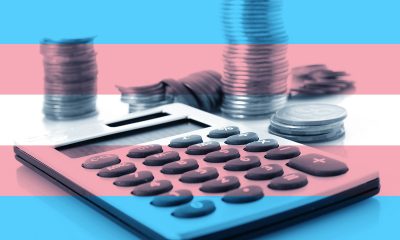National
‘Tranny stix’ menu item sparks controversy
Oregon pizza parlor apologizes after misstep


(Public domain photo by Jon Sullivan)
PORTLAND, Ore.—A local pizza restaurant has removed an item from its menu in response to criticism from advocates who claimed it was transphobic.
Lonesome’s Pizza in downtown Portland described its breadsticks as “tranny stix.” PQ Monthly reported an image of restaurant co-owner Nic Reddy in drag accompanied the menu item.
“The absolute last thing we ever want to do is upset somebody who’s already got a rough road,” Reddy told the newspaper. “The idea of doing that makes us all feel pretty horrible. So, if you’re transgender, we’re all apologies.”
National
FBI warns of potential threats to Pride Month events
Advisory notes June 12 marks eight years since Pulse nightclub massacre
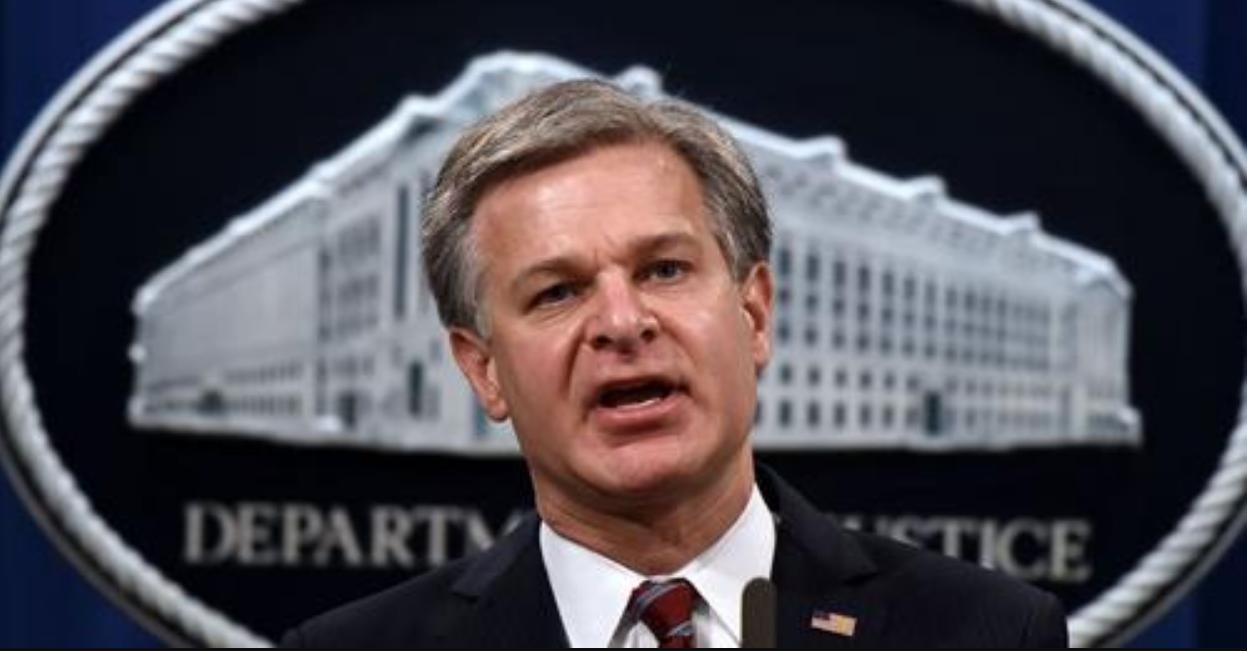
Citing the rising numbers of violent threats primarily across the digital landscape online including emailed bomb and death threats, officials from the Federal Bureau of Investigation and Homeland Security Investigations have issued warnings that foreign terrorist organizations or their supporters are targeting the LGBTQ community during Pride Month.
In a notice released on May 10, the FBI and HSI warn that efforts to commit or inspire violence against LGBTQ celebrations, including Pride celebrations or other LGBTQ-related venues, are compounded by the current heightened threat environment in the U.S. and other Western countries.
The FBI and HSI noted that June 12 marks the eighth anniversary of the Pulse nightclub shooting in Orlando, Fla., during which the attacker killed 49 people and wounded 53 others. After the Pulse shooting, pro-ISIS messaging praised this attack as one of the high-profile attacks in Western countries, and FTO supporters celebrated it. There are concerns that instances like the Pulse anniversary could spark a violent attack.
In addition to the threats posed by off-shore groups, increased threat levels domestically including recently documented instances of homophobic and transphobic threats exemplified recently from reporting by multiple media outlets regarding Libs of TikTok’s creator Chaya Raichik, who had initiated an ongoing campaign against Planet Fitness, demanding a boycott in retaliation for the gym’s transgender-inclusive locker room policy.
At least 53 locations of Planet Fitness have reported hoax bomb threats in recent weeks; the threats were primarily reported through emails, and in some cases, phone calls, continuing what has become a trend of violent threats against institutions targeted by Raichik.
Raichik has a long documented history of fostering anti-LGBTQ animus through her posts which in turn has led to what NBC News, Media Matters, the SPLC, the Washington Blade, and others documenting Raichik’s anti-LGBTQ acts of arguably stochastic terrorism.
In February, NBC News Technology Reporter David Ingram, detailed bomb threats and violent threats inspired by Raichik’s social media posts. NBC News identified 33 instances, starting in November 2020, when people or institutions singled out by Libs of TikTok later reported bomb threats or other violent intimidation.
During his April 11 testimony on Capitol Hill, FBI Director Christopher Wray issued a warning to lawmakers telling a House subcommittee that there is a growing fear among law enforcement officials of possible “coordinated attack” inside the U.S. telling committee members that a “lone-wolf” attack promulgated by events in Middle East are the agency’s overarching worry.
Speaking with the Blade on background, a senior FBI official noted that Pride events in locales other than major urban settings, particularly the largest Pride gatherings in New York, San Francisco, Los Angeles, and D.C., which have a traditionally large police presence, smaller cities and towns are at elevated risk.
In an emailed statement, the FBI said it has, in general, observed an increase in threats of violence targeting institutions like hospitals and schools.
“As a country and organization, we have seen an increase in threats of violence targeting government officials and institutions, houses of worship, schools, and medical facilities, just to name a few. The FBI and our partners take all threats of violence seriously and responding to these threats ties up law enforcement resources.
“When the threats are made as a hoax, it puts innocent people at risk, is a waste of law enforcement’s limited resources, and costs taxpayers. The FBI and our state and local partners will continue to aggressively pursue perpetrators of these threats — real or false — and hold them accountable,” the FBI statement said.
Reacting to the elevated threat levels in a statement, GLAAD President Sarah Kate Ellis said:
“A fringe few extremists, domestically and overseas, are irrationally threatened by the rising tide of acceptance for LGBTQ people. It is important to keep Prides safe for all attendees, and for people to keep showing up during Pride and throughout the year to speak up for the equality and safety of their communities and all marginalized people.”
The FBI is asking that Pride event planners, organizers, and others be aware of possible indicators of potential threat activity:
- Violent threats made online, in person, or via mail.
- Unusual or prolonged testing or probing of security measures at events or venues.
- Photography of security related equipment, personnel, or access points consistent with pre-operational surveillance without a reasonable alternative explanation.
- Unusual surveillance or interest in buildings, gatherings, or events.
- Attempts to gain access to restricted areas, bypass security, or impersonate law enforcement officials.
- Observation of or questions about facility security measures, including barriers, restricted areas, cameras, and intrusion detection systems without a reasonable alternative explanation.
- Eliciting information from facility personnel regarding the nature of upcoming events, crowd sizes, busiest times of day, etc., without a reasonable alternative explanation.
- Attempts to enter a restricted area, bypass security, or impersonate law enforcement officials.
National
Target limits Pride Month collection sales
Attacks against employees, threats prompted company to remove LGBTQ products in 2023
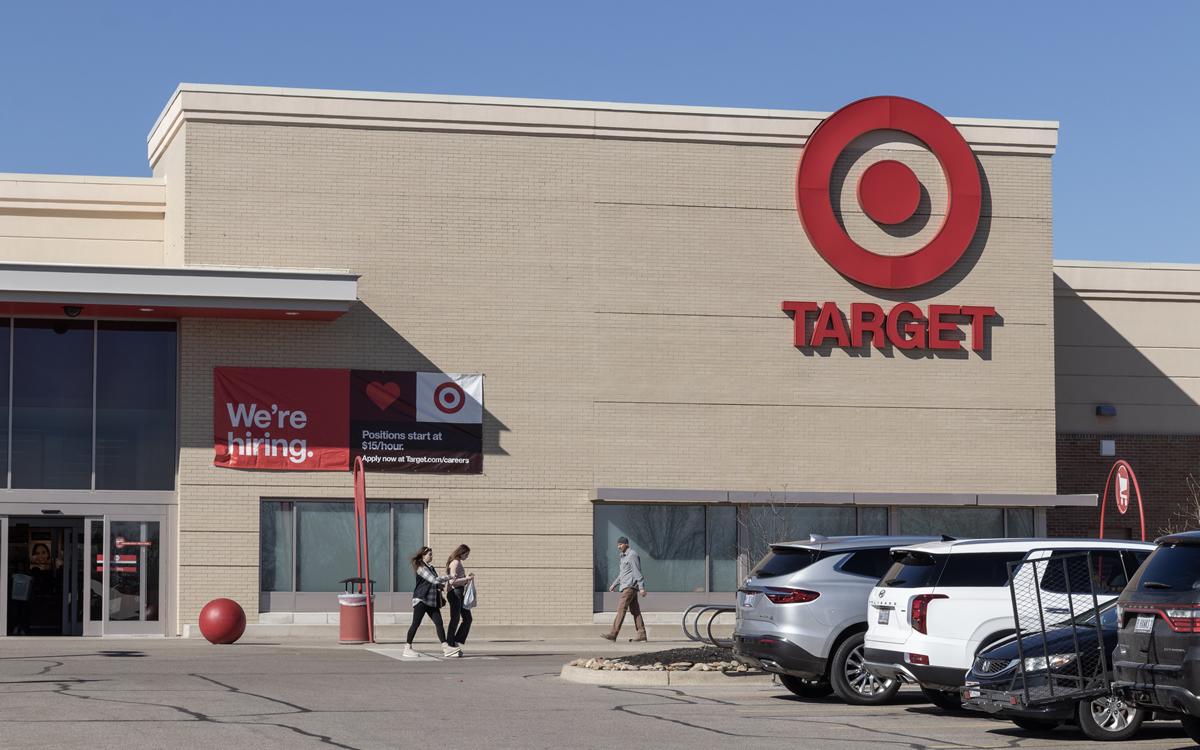
The Minneapolis-based retail giant Target has announced that it has scaled back availability of its LGBTQ Pride Month collection to select stores and online sales. In May of last year the retailer was forced to remove its LGBTQ merchandise after attacks on employees and emailed threats including bomb threats.
In a media statement to the Washington Blade deflecting on specifics regarding the company’s decision to only offer its Pride collection to only about roughly half of its nearly 2,000 stores nationwide, a spokesperson for Target said:
“Target is committed to supporting the LGBTQIA+ community during Pride Month. Beyond our own teams, we will have a presence at local Pride events in Minneapolis and around the country, and we continue to support a number of LGBTQIA+ organizations. Additionally, we will offer a collection of products for Pride, including adult apparel, home products, food and beverage, which has been curated based on guest insights and consumer research. These items, starting at $3, will be available in select stores and on Target.com.”
In an emailed statement reacting to the news Human Rights Campaign President Kelley Robinson said:
“Pride merchandise means something. LGBTQ+ people are in every zip code in this country, and we aren’t going anywhere. With LGBTQ+ people making up 30 percent of Gen Z, companies need to understand that community members and allies want businesses that express full-hearted support for the community. That includes visible displays of allyship.
Target’s decision is disappointing and alienates LGBTQ+ individuals and allies at the risk of not only their bottom line but also their values.”
In May 2023, police departments in Utah, Ohio, and Pennsylvania aided by assistance from agents from Federal Bureau of Investigation Field Offices in Ohio and Utah investigated threats, including a bomb threat to multiple Utah locations, made by email to local media referencing the retail chain Target’s LGBTQ merchandise collections celebrating Pride Month.
At the time last May, Target spokesperson Kayla Castañeda released a statement from the company:
“For more than a decade, Target has offered an assortment of products aimed at celebrating Pride Month. Since introducing this year’s collection, we’ve experienced threats impacting our team members’ sense of safety, and well-being while at work. Given these volatile circumstances, we are making adjustments to our plans, including removing items that have been at the center of the most significant confrontational behavior. Our focus now is on moving forward with our continuing commitment to the LGBTQIA+ community and standing with them as we celebrate Pride Month and throughout the year.”
National
From LGBTQ book bans to internet bans: A bipartisan attack on knowledge
Online safe spaces for queer youth increasingly at risk
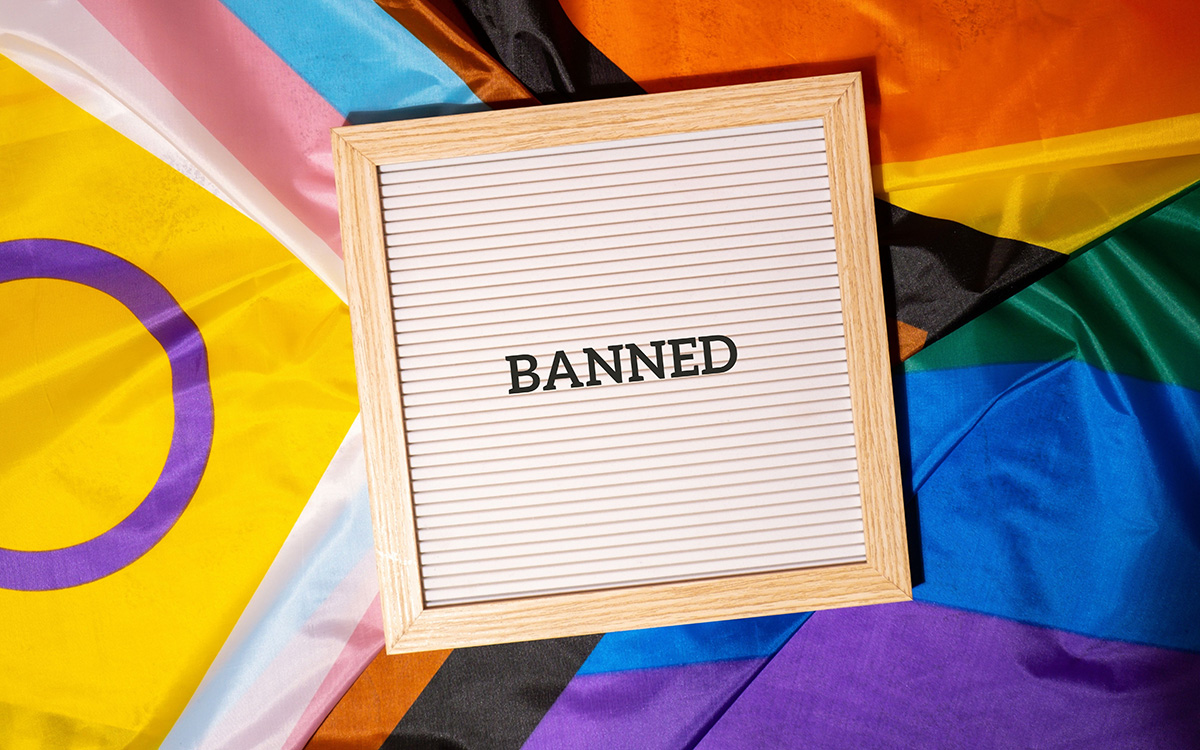
“They had LGBTQ-inclusive books in every single classroom and school library,” Maxx Fenning says of his high school experience. “They were even working on LGBTQ-specific course codes to get approved by the state,” he said, describing courses on queer studies and LGBTQ Black history.
No, Fenning didn’t grow up in Portland or a Boston suburb. Fenning graduated from a South Florida high school in 2020. Florida’s transformation from mostly affirming to “Don’t Say Gay” has been swift, he says. “It feels like a parallel universe.”
Fenning, who just graduated from the University of Florida, follows the developments closely as the executive director of PRISM FL Inc., a youth-led LGBTQ nonprofit he founded at 17. “I’ve watched so many of the things that I kind of took advantage of be stripped away from all of the students that came after me,” Fenning says. “It’s one thing to be in an environment that’s not supportive of you. It’s another thing to be in an environment that’s supportive of you and then watch it fall apart.”
“It’s just gut-wrenching,” Fenning explained, describing how Florida’s increasingly hostile legislation has transformed the state he has lived in most of his life.
Most recently, Florida passed HB3, “Online Protections for Minors,” which bans youth under 14 from having social media accounts. Youths aged 14 and 15 need parental consent before getting accounts and any minor must be protected from “harmful content” online.
Unlike the previous legislation, which came predominately from the right and directly targeted issues like gender-affirming healthcare or DEI, HB3 is part of a bipartisan push across the country to regulate social media, specifically for youth. HB3 was co-sponsored by Michele K. Rayner, the openly queer Black member of the Florida Legislature, alongside many of her colleagues across the aisle. Similar national legislation, like Kids Online Safety Act, includes 68 Democratic and Republican sponsors.
Shae Gardner, policy director at LGBT Tech, explains that this legislation disproportionately harms LGBTQ youth, regardless of intentions or sponsors.
Gardner says that while all these bills claim they are for the safety of kids, for LGBTQ youth, “you are putting them at risk if you keep them offline.” She explains that “a majority of LGBTQ youth do not have access to affirming spaces in their homes and their communities. They go online to look like that. A majority say online spaces are affirming.”
Research by the Trevor Project, which reports that more than 80% of LGBTQ youth “feel safe and understood in specific online spaces” backs this up. Specific online spaces that are under target from legislation, like TikTok, are disproportionately spaces where LGBTQ youth of color feel safest.
“For LGBTQ people, social media has provided spaces, which are, at once both public and private, that encourage, and enhance … a great deal of self-expression that is so important for these communities,” confirms Dr. Paromita Pain, professor, Global Media Studies & Cybersecurity at University of Nevada, Reno. She is the editor of the books “Global LGBTQ Activism” and “LGBTQ digital cultures.”
Fenning emphasizes that with bills like “Don’t Say Gay,” in Florida — and other states including North Carolina, Arkansas, Iowa, and Indiana — LGBTQ youth have less access to vital information about their health and history. “Social media [are] where young people increasingly turn to get information about their community, their history, their bodies and themselves.”
At PRISM, Fenning works to get accurate, fact-backed information to Florida youth through these pathways, ranging from information on health and wellbeing to LGBTQ history to current events. The feedback has been overwhelmingly positive. Often youth tell him “I wish I learned this in school,” which is a bittersweet feeling for Fenning since it represents how much young LGBTQ youth are missing out on in their education.
Morgan Mayfaire, executive director of TransSOCIAL, a Florida advocacy group, said that these internet bans are an extension of book bans, because when he was a teen, books were his pathway into the LGBTQ community. “For me it was the library and the bookstores that we knew were LGBTQ friendly.” Now 65, Mayfaire understands that “kids today have grown up with the internet. That’s where they get all their information. You start closing this off, and you’re basically boxing them in and closing every single avenue that they have. What do you think is going to happen? Of course, it’s going to have an impact emotionally and mentally.”
Fenning says that social media and the internet were powerful to him as a teen. “I was able to really come into my own and learn about myself also through social media. It was really powerful for me, building a sense of self.” Gardner agrees, sharing that legislation like this, which would have limited “15-year-old me, searching ‘if it was OK to be gay’ online, would have stagnated my journey into finding out who I was.”
Gardner also explains that many of the bills, like HB3, limit content that is “harmful” or “obscene” but do not specifically define what that content is. Those definitions can be used to limit LGBTQ content.
“Existing content moderation tools already over-censor LGBTQ+ content and users,” says Gardner, “they have a hard time distinguishing between sexual content and LGBTQ+ content.” Pain emphasizes that this is no accident, “there are algorithms that have been created to specifically keep these communities out.”
With the threat of fines and litigation from HB3, says Gardner, “moderation tools and the platforms that use them is only going to worsen,” especially since the same legislators may use the same terms to define other queer content like family-friendly drag performances.
In addition to being biased, it has devastating effects on LGBTQ youth understanding of their sense of identity, Fenning explains. “That perception of queer people as being overly sexual or their relationships and love being inherently sexual in a way that other relationships aren’t does harm to our community.”
Gardner acknowledges that online safety has a long way to go — pointing to online harassment, cybercrime, and data privacy—but that these bills are not the correct pathways. She emphasizes “everybody’s data could be better protected, and that should be happening on a federal level. First and foremost, that should be the floor of protection.”
She also emphasizes that content moderation has a long way to go from targeting the LGBTQ community to protecting it. “Trans users are the most harassed of any demographic across the board. That is the conversation I wish we were having, instead of just banning kids from being online in the first place.”
Being queer on the ground in Florida is scary. “The community is very fearful. This [legislation] has a big impact on us,” explains Mayfaire.
“I mean, it sucks. Right?” Fenning chuckles unhappily, “to be a queer person in Florida. In a state that feels like it is just continuously doing everything it can to destroy your life and all facets and then all realms.”
Despite the legislative steamrolling, several court wins and coordinated action by LGBTQ activists help residents see a brighter future. “There’s a weird tinge of hope that that has really been carrying so many queer people and I know myself especially this year as we’re seeing the rescinding of so many of these harmful policies and laws.”
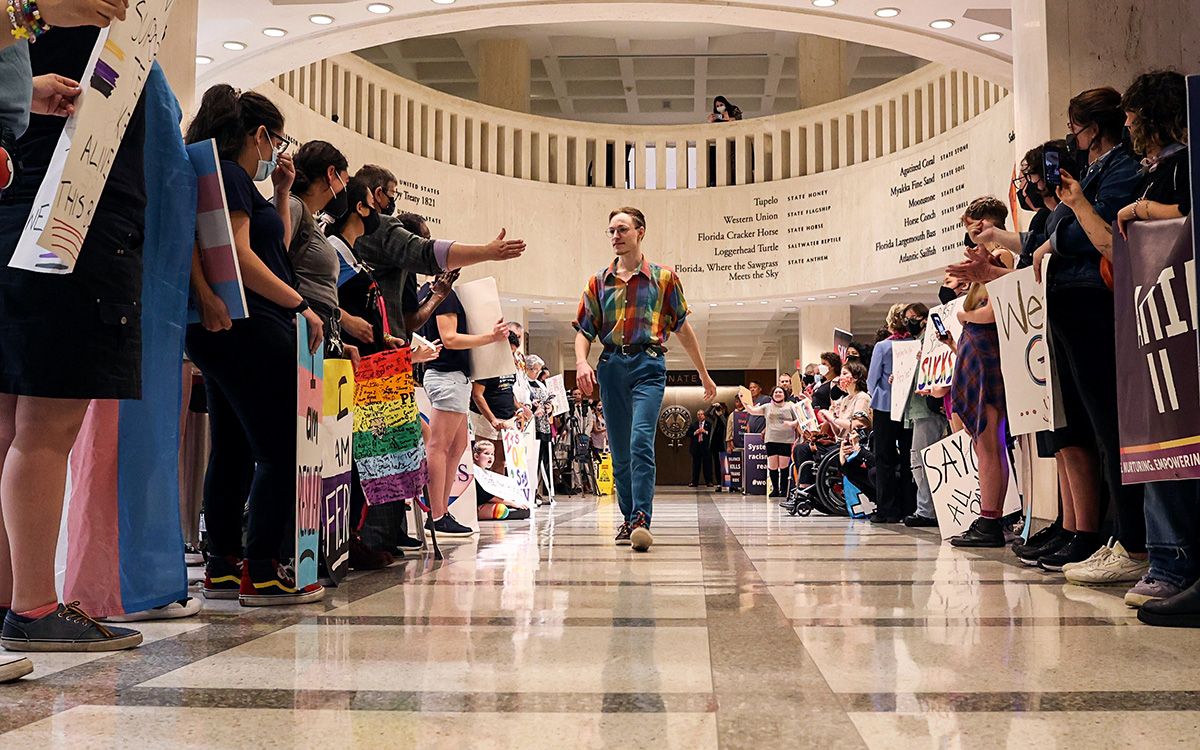
For example, this March, Florida settled a challenge to its “Don’t Say Gay” legislation that significantly lessens its impact. Already, experts warn that HB3 will face legal challenges.
Pain emphasizes that social media is central to LGBTQ activism, especially in Florida. “There have been examples of various movements, where social media has been used extremely effectively, to put across voices to highlight issues that they would not have otherwise had a chance to talk about,” she says, specifically citing counteraction to “Don’t Say Gay.” That is another reason why legislation like this disproportionately harms LGBTQ people and other minority groups, it limits their ability to organize.
Fenning emphasizes that HB3 directly attacks spaces like PRISM, which do not just share information for the LGBTQ community, but provide spaces for them. “Foundationally it provides an opportunity for the community,” he says, but more than anything, it provides a space, where “you can you can learn from your queer ancestors, so to speak, and take charge.” And that is invaluable.
(This story is part of the Digital Equity Local Voices Fellowship lab through News is Out. The lab initiative is made possible with support from Comcast NBCUniversal.)





